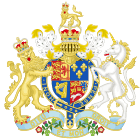Hat Act 1731 facts for kids
| Act of Parliament | |

|
|
| Long title | An Act to prevent the Exportation of Hats out of any of His Majesty's Colonies, or Plantations in America, and to restrain the Number of Apprentices taken by Hatmakers in the said Colonies or Plantations, and for the better encouraging the making Hats in Great Britain. |
|---|---|
| Citation | 5 Geo. 2. c. 22 |
| Territorial extent | British America and the British West Indies |
Quick facts for kids Dates |
|
| Royal assent | 15 July 1732 |
| Commencement | 15 July 1787 |
| Repealed | 15 July 1867 |
| Other legislation | |
| Repealed by | Statute Law Revision Act 1867 |
|
Status: Repealed
|
|
| History of passage through Parliament | |
The Hat Act of 1731 was an old law made by the Parliament of Great Britain. It was created in 1732 to control and stop people in the American colonies from making too many hats.
This law was one of many rules the British Parliament made. They wanted to limit what the colonies could make. This was especially true for areas in North America that had lots of raw materials. Britain wanted to protect its own businesses from competition from the colonies.
Contents
Why Was This Law Made?
The British government wanted to make sure that people in the colonies bought goods from Britain. They believed that the colonies should help Britain's economy. By limiting what the colonists could make, Britain hoped they would buy more British products.
What Did the Act Do?
The Hat Act put specific limits on hat making in the colonies.
- It stopped colonists from selling or sending hats outside their own colony.
- Hatmakers could not hire many workers.
- They could only have two apprentices (young people learning the trade).
These rules made it hard for hatmakers in the colonies to grow their businesses.
How Did It Affect Colonists?
This law meant that Americans in the colonies had to buy hats made in Britain. This rule made hats and cloth from Britain much more expensive. Colonists paid about four times more for these imported goods than for local items.
Thomas Jefferson, a famous American leader, spoke out against this law. He called it an example of "despotism" (meaning unfair and harsh rule). He said it was like nothing else in British history.
The End of the Hat Act
The Hat Act was a law that caused a lot of frustration in the colonies. It was one of the reasons that led to tensions between Britain and its American colonies. This tension eventually played a part in the American Revolution.
The Hat Act was finally removed from law in 1867. This happened when the Statute Law Revision Act 1867 was passed.
 | Jewel Prestage |
 | Ella Baker |
 | Fannie Lou Hamer |

